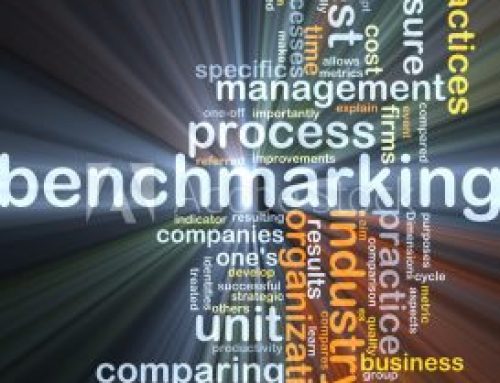When the board members of KeyCorp were considering appointing Beth Mooney as Chairman and CEO, they knew she was beyond well-qualified, but they worried they didn’t know the real her.
Mooney explained to the Wall Street Journal:
“A board member in the interview process gave me an insight into where I was falling short among some of the men on the board. He said, ‘You’re too buttoned up. You’re too prepared. They find it offputting, they say, “Where is the genuineness? Is this a person who would give you the bad news? Is this the person who’s going to be candid? If they’re always that buttoned up, what’s the real person?”‘
“It was a breakthrough moment for me to understand some of what I needed to do to translate my abilities and ambitions, to make them comfortable and trusting that they were making the right choice.”
Mooney, who was named KeyCorp’s Chairman and CEO in 2011, may be the first female to run a top 20 U.S. bank, but she is definitely not the first woman to encounter a push back on how her personality is perceived by her male colleagues.
Is Your Style Helping or Hindering You?
Women have to walk an incredibly fine line at work. Be assertive, but don’t be too aggressive. Push back, but don’t get angry. Be the most prepared person in the room, but don’t be too uptight. Above all, be authentic. But with so much contradictory advice on how to act at work, authenticity can seem like a impossible dream.
The first step is to figure out how your personality is perceived at work. This is where a 360-degree evaluation can really be helpful.
For those that don’t have access to a formal, company-supported evaluation process, Scott Edinger, founder of Edinger Consulting Group, recommends conducting your own informal 360 review in which you ask colleagues, direct reports, and superiors four simple questions:
1. What are my strengths?
2. What are my fatal flaws?
3. Which of my strengths are most important to the company?
4. Which of my strengths is most important to you?
Listen to the feedback without becoming defensive. Remember that leaders don’t need to be perfect, but they do need to continually work towards building their strengths and addressing their weaknesses.
Are You Getting What You Want?
It is also important to assess how your personality impacts your performance. Daniel Ames, a professor at Columbia Business School and author of “Pushing Up to a Point: Assertiveness and Effectiveness in Leadership and Interpersonal Dynamics” recommends completing a “success inventory” to see how effective your style is. In a Harvard Business Review blog post, Ames recommends:
“Over a defined period of time — a few weeks or a month — before entering a discussion or meeting, ask yourself, ‘What do I want from this situation?’ Then, afterwards, evaluate the results: ‘Did I get what I wanted?’ This will create a track record of your success and indicate whether you need to adjust your style.”
Do you capitulate too easily? Are you too aggressive, making others feel immediately defensive? Are you too standoffish? Too informal? By analyzing how effective you are in a variety of situations, you will start to get a better grasp of your strengths and weaknesses.
Building Trust
As Beth Mooney stated, the real key is showing that, beyond your ambition and accomplishments, you are trustworthy and honest. An essential ingredient to building trust and intimacy at work is openly asking, “What can I do better?” As your superiors, colleagues, and direct reports see that you value their opinions and take their feedback to heart, an environment of openness, comfort, and trust will follow.





